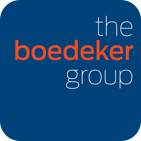
As a Brand Manager and then Managing Director for a large portfolio, I loved rookie reps. As soon as I would receive their in-company introductory email I would send them a welcome email to introduce myself, set up a time to speak with them to give them more detailed information about our products, and share background information on courses they would be calling on so that when they were speaking with a professor with a Ph.D in an area they may know little about they would feel confident in the conversation. I would share what I knew about what was happening in their territories and within their largest committees and I would also ask them to help me and my team uncover information where we didn’t yet have in-roads or we simply needed on-the-ground support. I loved the start of these partnerships where we began working together to collectively hit our shared goals. It was the start of really strong relationships, many that continue today.
But I loved rookie reps for another reason as well. They didn’t know which professors to avoid; those that had shut the door in the face of the previous rep and said “Nope, not interested. Don’t come back.” They either didn’t know or would want to confirm for themselves who the key players were in each committee. They would go into all those initial sales calls attempting to uncover the needs of the professor and learn how we may be able to satisfy that need with one of our products. They wouldn’t assume that they knew which product was being used by which professors or think they knew why those professors were using those products. They would ask. They were new. They had a lot of questions and a lot less answers, so they would ask… and almost always those questions led to uncovering new opportunities we wouldn’t have learned about otherwise. Rookie reps look at their territory in a way only new reps can – with a fresh pair of eyes.
There is an experience trap that I fell into on more than one occasion in my product development role before I recognized I was doing this. And don’t misunderstand me here, I value experience. Of course, I do. I was a much better Brand Manager a couple of years into the position than I was when I started, and great reps are always going to ask great questions and get to the root of a customer’s needs. But I could also feel myself falling into a trap on occasion; thinking I knew the answer to the question before I asked it, and even worse – stopping altogether asking that question because I “knew” the answer.
In team meetings, I could look at our target list and roll through all of the biggest committee adoptions across the country and say “don’t bother here, they are using xyz and they aren’t going to move. This department won’t move until the Chair retires and that’s not for some time yet. This department won’t use digital, etc”. I could quickly whittle down our list to those that I thought were the most winnable. Streamlining your project target list makes sense; there are only so many hours in a day and so many opportunities you can effectively work. But it only makes sense to do this if the information is current and you are constantly checking yourself and your team about what you know vs what you think you know.
When I moved into the Managing Director role and hired my replacement for this portfolio she, naturally, had a lot of questions for me: who were the major players, why did professors adopt this digital program vs. this one, what did the professors teaching this course care about the most, what were the different approaches someone may take when taking teaching this course, etc… She was extremely curious, which was one of the main reasons I hired her. I found myself in the first meeting starting to give her all the information that I knew, until it hit me — Stop. Encourage her find out the answers for herself not only because it helps to start building relationships with the key people in the market, but it also forces the questions to be asked again. That leads to the next level of question that gets asked. And the next level. Things change. People involved in the opportunity change. The course changes. If you’re relying on answers from the people who have been “doing this for years”, you stop asking some basic questions that can have a significant impact on your product development and marketing strategy.
In the short time, I have launched The Boedeker Group and started working with clients, I have been reminded of the power of a fresh set of eyes. I am reminded of the importance of putting aside what you think you know (if you haven’t asked in a while) and asking again. I see the value that comes with this kind of strategic engagement with customers. I also appreciate how thinly teams are stretched to be able to do this on their own and see how outside support is sometimes necessary to go this deep.
Let us help. These conversations start with new questions being asked, new answers being heard, and frequently lead to new insights being uncovered that can impact your product development, market development and marketing strategies.

